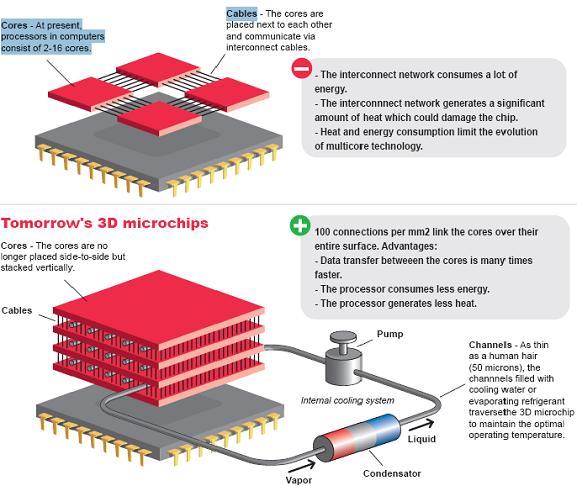IBM, EPFL & ETH to build 3D brain-density processors
Published by The Register on 14/12/09

"Boffins in Switzerland have warned that increasingly powerful computer processors are set to guzzle the entire world electricity supply by the year 2100. They say that only 3D myria-core chips can save the day." Click for more...



